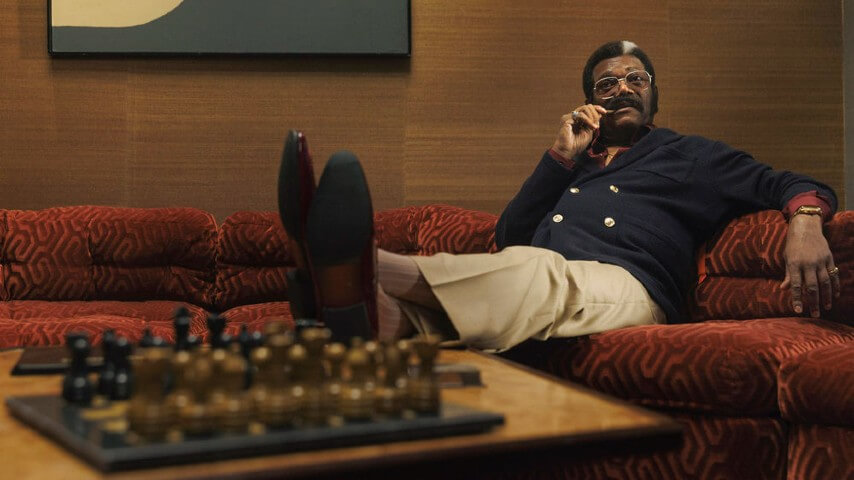Fight Night: The Million Dollar Heist just doesn't connect
Peacock stretches a star-studded project into a limited series
Samuel L. Jackson as Frank Moten (Photo: Fernando Decillis/PEACOCK)
The ingredients that make up the new limited series Fight Night: The Million Dollar Heist will be all too familiar to anyone who’s paying attention to this TV moment. The eight-episode series is inspired by a true-crime podcast that itself was an unearthing of a shocking robbery connected to Muhammad Ali’s return to boxing in 1970. It’s available on Peacock, one of a host of streaming services continuing to battle for audience attention. It boasts a recognizable ensemble cast, as well as a well-known director and producer. It starts in medias res to potentially amplify the tension and make the audience wonder how its antihero lead could wind up with a gun in his face. And it is, as is almost a requirement with new shows, at least two or three episodes too long—to the point of raising the question of why the series exists at all. The story it tells is indeed fascinating, but at heart, its intent is to prove that A-list actor and stand-up Kevin Hart has a secret well of dramatic talent. And in that respect, it’s a miss.
Fight Night is centered around two events: first, Ali getting back in the ring in Atlanta in the fall of 1970 and the related media attention surrounding his refusal to be drafted into military service in the Vietnam War; and second, a heist that takes place at a house party held during Ali’s fight by Gordon “Chicken Man” Williams (Hart), a hustler so desperate to move up the ranks of the Southern underworld that he’s holding the party in honor of the so-called “Black Godfather,” Frank Moten (Samuel L. Jackson). Once the robbery is complete, Williams winds up being accused as its mastermind. The Chicken Man (and yes, people often refer to him that way) eventually has to convince not only Frank and his fellow criminals but also straight-arrow cop J.D. Hudson (Don Cheadle) that for all his small-time crimes, he’s innocent of this specific heist.

 Keep scrolling for more great stories from A.V. Club.
Keep scrolling for more great stories from A.V. Club.